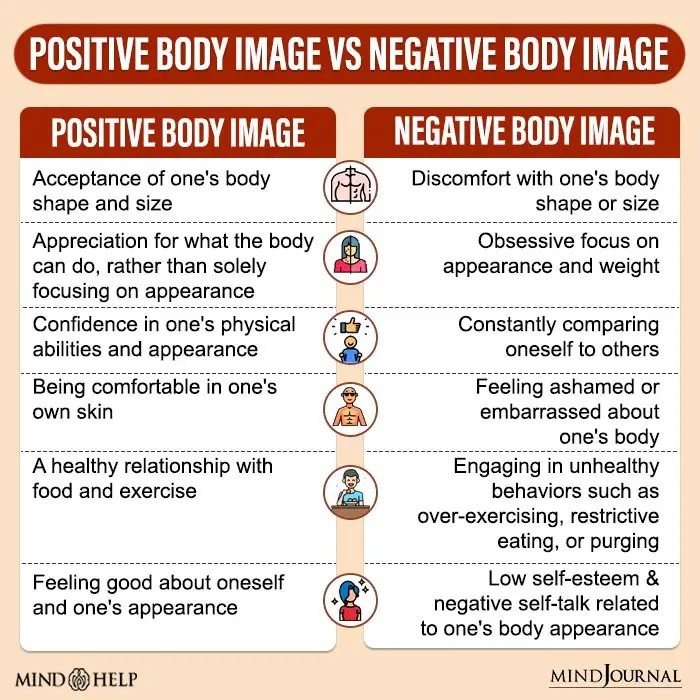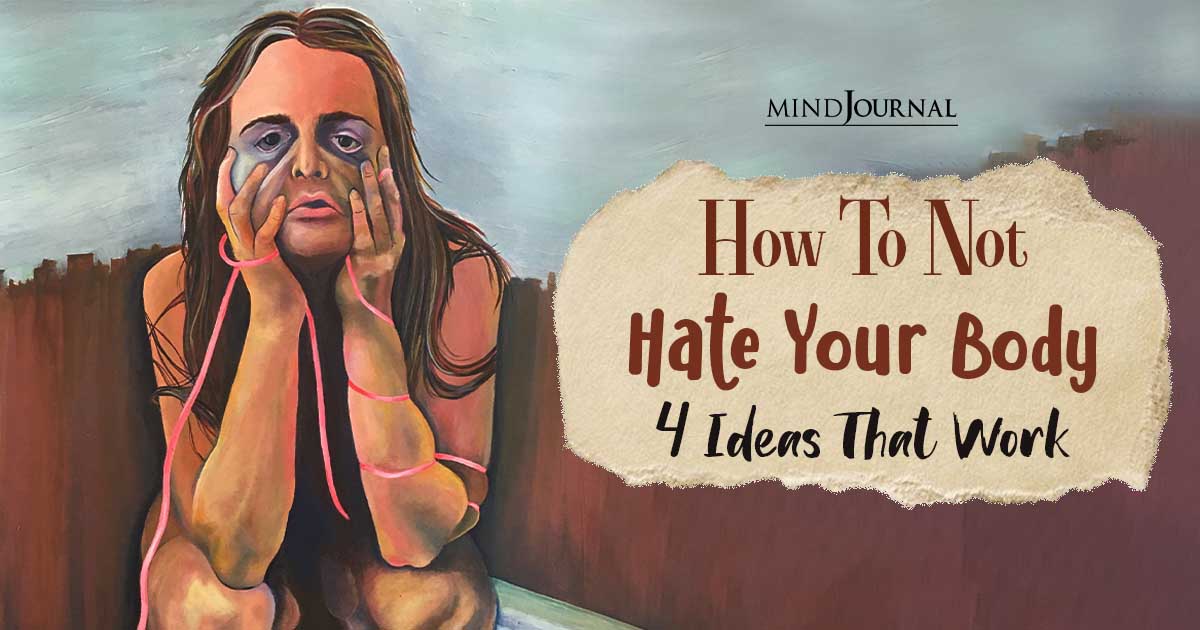How to not hate your body? What can you do if your aim is improving your body image? Dealing with body image issues is challenging, to say the least. However, it is possible to stop hating your body without losing a single pound or focusing on the weighing scale. Let’s explore how to stop hating your body and loving yourself more.
Sometimes I get emails that tear me up with their honesty and vulnerability, recently I received one that particularly touched me.
“I wanted to tell you that I really enjoy your podcast! I always look forward to the 20-30 minutes where I can just relax and listen to your discussion.
I have always struggled with my weight, despite healthy eating and exercise… While I have never been obese, I have always been above-average and so, body image has become a target for my mental illness to unleash upon.
I purposefully avoid mirrors, cringe at photos of myself, and tell myself that when something does not work out romantically for me, the reason is my weight and body size.
I look at other women and recognize that they are not better than me in any realm except they are thin and I am not. It becomes the common denominator in all of my unhappiness.
I’m not even sure the obvious solution (drastic measures to lose weight) will provide me with comfort I seek.
I guess my question is, how do I separate my body image (from) self-worth and how do I learn to love the body I have?”
Related: Why Body Image Has Nothing To Do With How Your Body Looks
This is the six million dollar question.
In our culture we’re constantly exposed to photo-shopped adolescent models selling everything from the right purse to the newest aging cream, older physiques are mocked as being “dad bods” having “bat wing arms,” and there’s always the newest six-pack (or eight or ten) abs craze right around the corner.
Wherever you fall on the spectrum of underweight, overweight, bigger thighs, no butt – you can despise the way you look. And that self-loathing, as the writer above tells us, will likely only feed depression and demoralization.
When it turns really sour, it can develop into “body dysmorphia,” which is critically obsessing about a certain part of your body, and doing all kinds of “things” to change it.
However, the wise email writer above also knows rationally that weight loss doesn’t solve the problem of low self-esteem. For example, weight loss surgeries can be a wonderful tool to help with a change in your relationship with food and my gastric surgery patients have shown tremendous drive and courage in having the procedure.
Yet, all of them have found that there are many feelings to work through that eating helped them to avoid or deny.
Our culture may be changing slowly. Brands like Dove are using more diverse body types. There are Facebook pages, YouTube channels, and workout groups encouraging healthy lifestyles rather than how thin your waist is.
But how many of you click that link on social media that promises the loss of ten pounds? Even if you tell yourself, “This is stupid. They’re just trying to sell me something…” But you still click.
Whatever shame you carry about your body is controlling your fingers. And your mind. So what can you do, every day, as you try to love the body you’re in?
Years ago, I was struggling with my own body image, leftover from what had been a journey with anorexia. My therapist told me to go home, take off all my clothes, and sit in front of a mirror. I was supposed to talk to myself about what I liked.
I was horrified. But I did it.
That exercise has stuck in my mind. It may have been the first time I’d searched for something positive to say about my body, rather than raking it, and me, over the proverbial coals.
What are four ways that have nothing to do with a number on a scale where you can work on a more positive body image?

How To Not Hate Your Body? 4 Things You Can Do (Without Losing A Single Pound)
1. Stop shaming yourself.
Shame will not help you and it will not lead you to make positive change; all shame will do is keep you stuck.
“I’ve got such fat ankles.”
“Look at the way my nose juts out.”
“I need to lose at least 100 pounds before anyone would be interested in me.“
You can tune into what your shame is repeating over and over, and confront it.
Say to yourself, “Is this helpful right now? Is this what I’d tell my best friend?” If not, stop, even if you have to yell at yourself. “Stop!” Then replace that thinking with positive comments.
Sit in front of mirror, naked, if you like. But replace the shame with affirmation.
Related: 5-Step Game Plan For Building A Positive Body Image
2. Use non-scale successes to encourage you to become who you want to be.
I loved what a gastric patient once told me. She was focusing on “non-scale success,” meaning good things that were happening that weren’t about some number on the scale.
Walking in the park with fewer stops, and fitting more easily behind the steering wheel of her car were two that come to mind.
Again, her goal was weight loss. But this could be true of anyone trying to love their body shape or size. In fact, Valerie Bertinelli celebrated her own healthier mental health after staying away from the scale for three months.
What’s a non-scale success?
“I’m laughing more than I used to when I’d weigh myself four times a day.”
“I got through an office lunch meeting without worrying about how I looked eating.”
“Someone told me I looked nice today, and I simply said, ‘Thank you.’”
Notice the things that are changing, mentally, physically and emotionally, and enjoy them. Give yourself credit for positive change.

3. Stop projecting what you see onto others and risk being seen.
Think about it. The first thing someone sees about you is what you look like. You’re short, you’re tall. You’re blonde, you’re red-headed. You’re muscular and fit, you’re thin and lanky.
If you hate parts of your body, you may isolate, not wanting anyone to see what you see. Never mind that what you see is highly likely to be completely irrational, and that you’re projecting your own image of yourself onto others.
You may go to work, and come home, or do things for your kids, but never do anything where the attention might focus on you.
So begin to reach out; you can start slowly, but start. In the grocery store check-out line, make small talk with the cashier. Call an old high school friend and catch up. Go to an early church service or to brunch with a neighbor. Volunteer for a small role in your child’s school or to walk dogs at a local shelter.
Do anything you can possibly think of to begin building relationships and most importantly, to feel engaged with others — to be visible to others.
4. Watch out for excuses.
“I haven’t talked to her in over a year. I can’t call her now, out of the blue.” Yes, you can.
“I didn’t keep things up the last time, I got scared and dropped out. How will this be any different?” You’re sabotaging your thinking before you ever get started. How many times did you have to try to ride a bike before you succeeded? And you had training wheels. Getting and staying engaged is a lot harder — it’s a skill like anything else.
Related: Beyond Beauty Standards: 9 Ways To Improve Body Image
This isn’t an easy journey. It takes time and practice. You’ll feel extremely vulnerable.
But vulnerability makes you stronger.
Check out Dr. Margaret’s Tedx Talk on YouTube, and also don’t forget to tune into her beloved podcast, The Self Work Podcast.
Written By Dr. Margaret Rutherford Originally Appeared On Dr. Margaret Rutherford










Leave a Reply